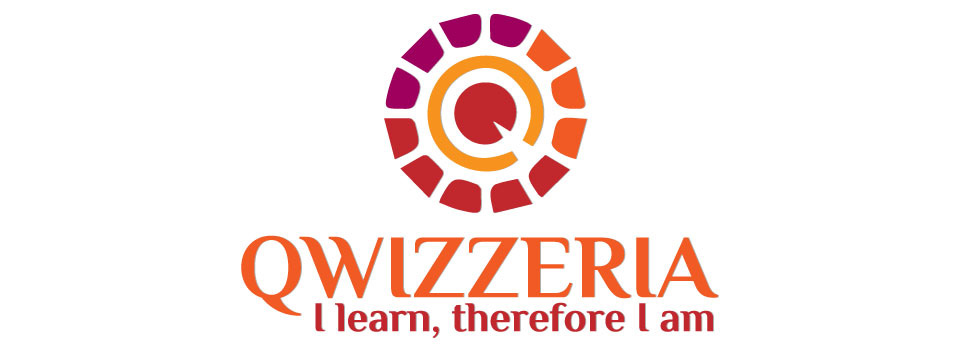Points to consider – the decision is yours
Is your child an Accidental Ambassador? Different children are good at different things. One of the stereotypes about Indian children in the western world is that every Indian child is a math genius. We often tend to see this in a positive light. Take a closer look, this could be a problem. To paraphrase Albert Einstein, don’t judge a fish for its ability to fly.
As a society and as parents, we tend to judge kids based on a stereotype arising from his/her background ethnicity. Due to this, kids often find themselves in the overburdened role of being cultural ambassadors for both their motherland and their host country. These accidental ambassadors often find themselves negotiating diplomacies that their parents have never had to handle. One of being these being educational skills.
Think about this: Why burden your children with expectations that will suffocate them? Let them blossom in their own way! Encouragement is good, encroachment is not.
Syllabus in a Suitcase: is it worth it? Many Indian families return from India with suitcases of books that follow the different Indian syllabi. We all hope that, should we find ourselves returning to India, our children will get admission into the ‘best schools’. We also suspect that standards in India might be ‘higher’. However, that simply seems to be the case because, at Indian schools, children begin formal learning earlier. While a child in Class 1 in India is being taught to write full sentences and is able to recite multiplication tables; in Switzerland, a Class 1 student is still learning to hold a pen or a book correctly and begin to read and do basic arithmetic.
I, like a few others, sit on the fence regarding these textbooks from India. If these textbooks and workbooks do make very occasional forays into the family timetable, I suggest allow yourselves to be guided, but not restricted by them. Our children have full timetables and they deserve to enjoy their playtime and other childhood activities! Sometimes, in trying to do our best for our children, we inadvertently overburden them.
Having said that, it’s really hard to quieten the devil on my shoulder when I think of all the things that the children back home are learning. As a parent, I often find myself putting pedagogy to one side and placing my parental anxieties first. But then, we must really endeavor to work through these worries and ensure that in the quest of making our children educationally mobile, we do not stress them to the degree that they lose their enthusiasm for learning.
Skills of today – flexibility and adaptability
The key skills to master in the 21st century then are flexibility and adaptability.
From a pedagogic point of view, this makes perfect sense; but as a parent, in practice, it is so hard to execute. A word of caution: do not think of flexibility and adaptability as synonyms for adjustment and compromise. Please refrain from venturing down that rabbit hole. The goal is to nurture children who thrive, who are tenacious and assertive. Teaching adjustment and compromise nip the much-needed qualities of tenacity and assertiveness in the bud. Focus on flexibility and adaptability in its true meaning.
Strengthen the positives
- Perspective: one of the bonus points of all that flexibility and adaptability that you will teach your children is that they will have a very well-honed sense of perspective. They will be able to see things from multiple points of view and will be much more nuanced in their approach to life. Encourage them to use these skills of analysis and observation and express it through writing, experimentation, and art.
- Communication: TCKs are skilled communicators. As they plunge from one cultural and linguistic environment to the next, the gift of the gab is what they often rely on in order to forge new friendships. Find academic and social opportunities that allow them to flex this muscle.
- Freedom: In Switzerland, children learn to cross the road and tie their shoelaces before learning their ABCs. When the sun is shining, seeing children play on the streets from dawn till dusk is a fairly common sight. Once their homework from school is complete, rather than fret about the necessity of also following the CBSE/ ICSE (and so on and so forth) curricula, allow your child the same freedom. It’s only when children have that eureka moment when they learn to look after themselves that they will also feel responsible for their own education. It’s always better when the enthusiasm for education comes from within and not imposed.
An approach that makes a difference
- Read: Every parent knows about Phonics these days, and we are all slightly obsessed with raising readers. Fill your home with books, read with your child and not to them. Rather than filling up your suitcase with textbooks, you could also bring back books published by Duckbill, Tulika, Karadi, and Pratham.
- Just STEM or full STEAM ahead: The world is already heading full speed ahead into everything that is STEM-related: Science, Technology, Engineering, and Maths have been buzzwords for the last 30 years, to say the least. But, I would argue that the Arts are just as important. Don’t deny your child their right to express themselves – be it through art or through languages or through music.
- In real life, the Arts and the Sciences interplay all the time. Designing goes hand-in-hand with critical thinking. So, even as we talk about how robotics are the future, we should also remember that in order to get there, the global workforce will have to use all the skills that they have at hand and that includes the Arts. So why not think STEAM, instead of limiting our children to STEM alone?
- Have faith in the Swiss system: A no-brainer really. Yes, the Swiss do start formal education fairly ‘late’ as per many Indian adults, but the pedagogy behind this ‘delayed start’ (according to many of us) is sound as this form of educating is child-led education rather than adult-led.
Examples of success stand proudly with ETH Zurich and the École Polytechnique Fédérale de Lausanne that regularly occupy positions in the top 20 when it comes to global university rankings. They have similar success in the Programme for International Student Assessment (PISA) scores.
Not everyone goes to Switzerland’s fiercely competitive gymnasiums, but we then have to question the logic that necessitates that everyone ought to go to university. Academic learning may not be everyone’s cup of tea and by making university education a benchmark of employability and success, we are doing our children a disservice. Switzerland not only recognizes this, it also ensures that those who venture down the apprenticeship route have access to both learning life skills that render them employable as well as a good quality of life. They can also return to formal academic study any time they wish and, this indeed is respected. I wish people of my own acquaintance had been awarded these possibilities by their own countries. - Have faith in your TCK: When raising and educating TCKs, do not be afraid to think outside the box and question accepted norms. Sometimes educating the TCK is all about educating the TCK parent first.
As I struggle to learn German, I am amazed at how well young TCKs living in this country have picked it up and are using it in their daily life. Our children who are possibly more immersed in the Swiss experience than us, often taken on the role of teacher and guide. That’s marvelous, isn’t it!
Disclaimer: Opinions expressed belong solely to the content provider. Namaste Switzerland does not undertake any financial/reputational/legal/misrepresentational impact or other obligations/ liabilities that may arise from the content.













Very rich and informative piece of writing. You might have forgotten this piece by now. I read it today and it is still fresh, relevant.